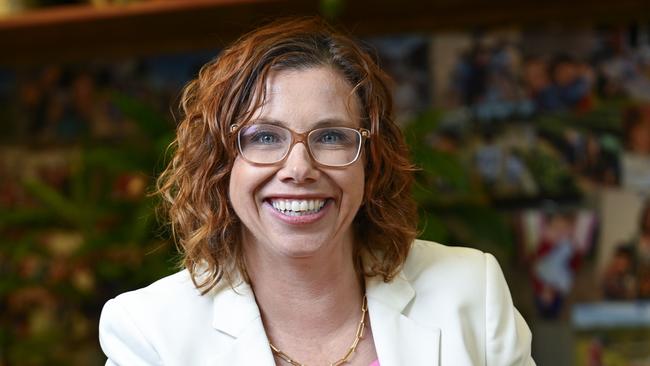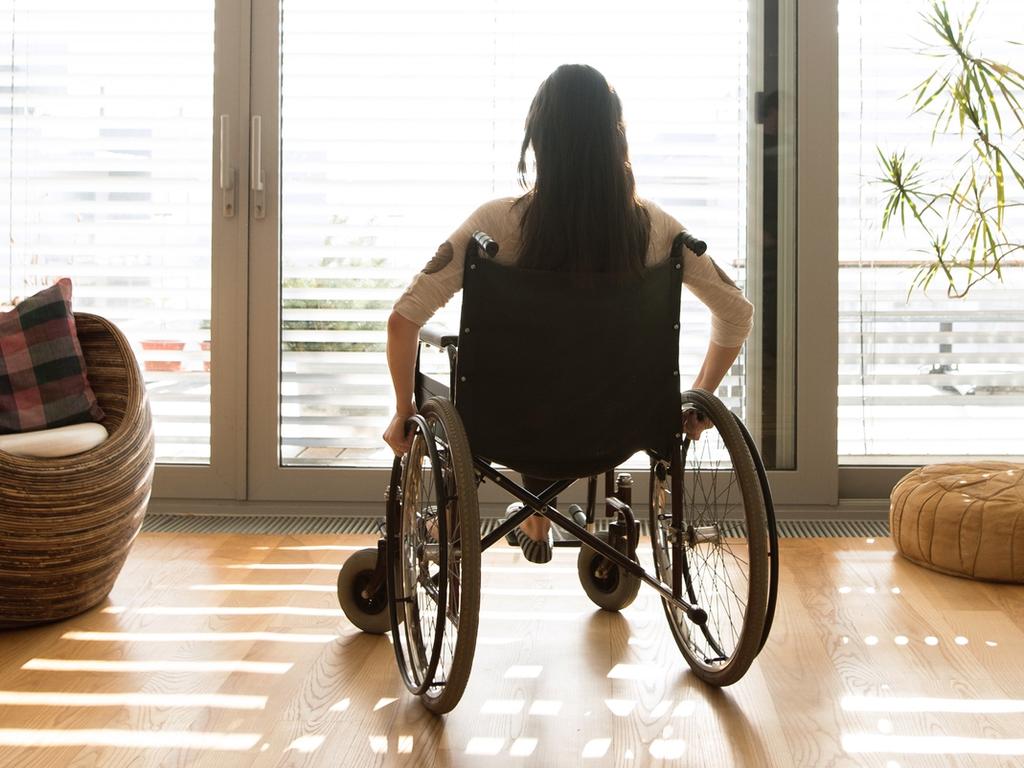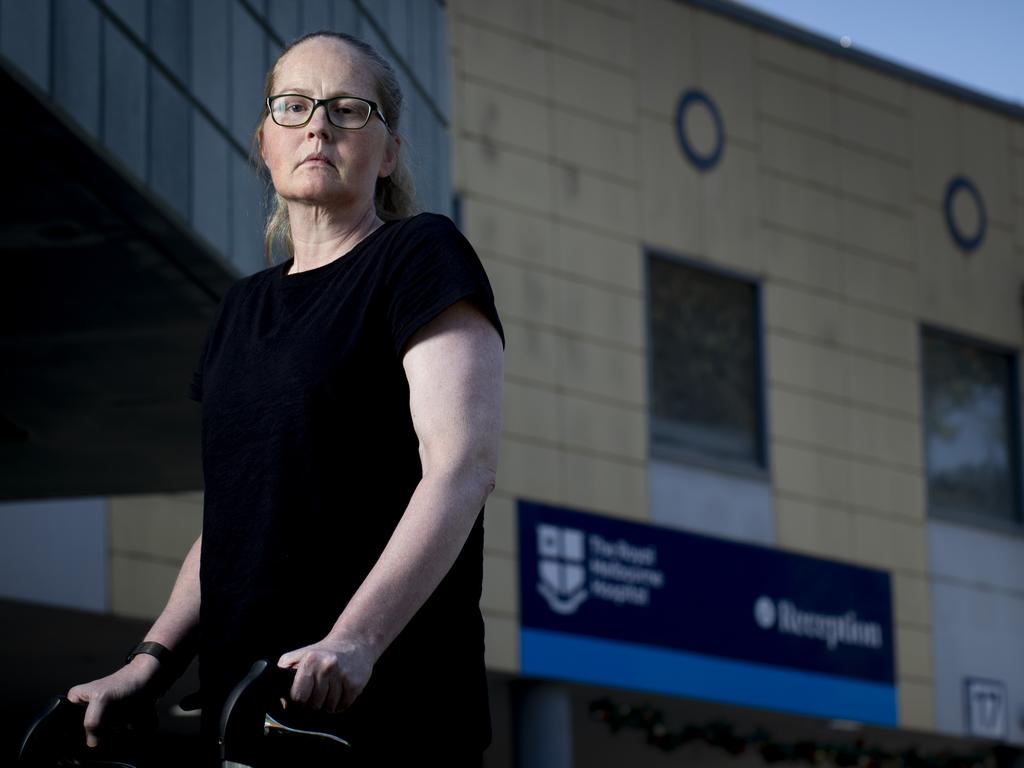‘No limits’: $44bn NDIS open to all disabilities
NDIS Minister Amanda Rishworth says there will be no tightening of what disabilities are eligible for the scheme despite the government facing a mammoth effort to rein in its costs, with Labor to instead launch a new review panel.

NDIS Minister Amanda Rishworth says there will be no tightening of which disabilities are eligible for the $44bn scheme despite the government facing a mammoth effort to rein in costs, with Labor instead to launch a new panel to review “contestable” services and programs participants are using.
Signalling the introduction of more restrictions on what programs NDIS participants can access, Ms Rishworth revealed she would appoint a panel of technical experts to advise government on “objective” evidence on how effective programs were and whether some services were being accessed too frequently.
While her predecessor, Bill Shorten, flagged late last year that eligibility changes would be considered as the government moved to lower its yearly spending growth to 8 per cent by mid-2026, Ms Rishworth said this was not part of her plans.
Of six million Australians with a disability, 680,000 are on the NDIS and nearly a quarter of those are children under nine.
“We are not planning to change eligibility criteria,” she said. “There’s no changes around kicking people off the scheme and stopping people from coming on.”
Amid concerns over the number of children with mild autism accessing the scheme – figures last year revealed more than one in 10 boys aged between five and 11 were on the NDIS – Ms Rishworth said it was important there were more options and support for parents who had children with developmental delays.
“It might be (programs) supporting parents with the skills they need on a particular area that their child might be being delayed developmentally,” she said.
“It will be delivered potentially through groups, potentially through short one-on-one support from allied health, potentially through peer support hubs, or indeed, online support.
“The idea is that it’s quick, fast and easy for you to access, so you won’t need to have, for example, a formal diagnosis and bring all the evidence that you require to get into the NDIS, but it will be accessible for parents very early on, easy to access so they can get that support.”
The South Australian MP – who took over the role from Mr Shorten in January while retaining the social services portfolio – said the first of the “foundational supports” would be rolled out in the second half of this year.
Ms Rishworth declared she never had a deadline of July 1 to roll out foundational supports, despite that timeframe being committed to by Mr Shorten in August and still being the expectation of the disability sector.
The NDIS Minister also said the rollout of foundational supports – designed to cater for people with lower-level disabilities so they did not join the NDIS – would be phased in over five years.
Her comments follow evidence from the National Disability Insurance Agency that showed nearly 11,500 NDIS participants were sent letters between July and September last year telling them their eligibility needed to be reassessed, compared with fewer than 8000 for the whole of 2022-23.
The NDIA and government maintain eligibility reassessments are not new and more letters were sent because the agency was being better resourced. While foundational supports were key to bringing the cost of the scheme down, as they provide disabled people with other options, Ms Rishworth said the new independent committee would advise on contestable programs and “whether they work or not”.
“This advisory committee, which will be supported by technical experts, will have a look at some of these, whether they are types of therapies or types of interventions,” she said. “It could be: what is the optimal dose of an intervention? How many speech pathology sessions are best for perhaps a child with speech delay?
“They will look at what’s on offer and provide advice to government, and we will be able to implement that advice into the operational guidelines of the NDIA when they’re designing and putting packages together.
“At the moment, we’re not using the evidence that’s out there about what is absolute best practice and applying that to NDIS plans. We need to be bringing a sense of objectivity and a sense of very clear guidance for planners about how people can get better outcomes, particularly for children through the early intervention pathway and the developmental delay pathway.”
The advice from the panel will build on Mr Shorten’s reforms to the NDIS last year, including the creation of a formal list of approved services, formally banning participants from using funding on hundreds of items including sex work, crystal therapy, cuddle therapy, reiki, life coaching and wilderness therapy.
Mr Shorten’s reforms are forecast to save the NDIS $14bn over four years, though questions have been raised over how much of this saving will be needed to prop up the new system of foundational supports.
Despite state governments ruling out a foundational supports deal until a new five-year public hospital deal is agreed, Ms Rishworth said she was confident the programs would begin this year.
States and territories agreed in principle in December 2023 to help fund the system of foundational supports but no costings for the proposal have yet been released. The agreement – under which the commonwealth and states fund foundational supports on a 50-50 basis – was also contingent on the five-year hospital funding package.
The Albanese government put negotiations over the hospital agreement on ice between June and November last year, in what was seen as a move to force states to the table on the disability reforms.
Despite this, agreements on the foundational supports and hospital funding could not be struck before WA entered its caretaker period ahead of the state’s March 8 election.
Health Minister Mark Butler hosed down suggestions this jeopardised foundational supports being rolled out in the second half of the year, declaring the commonwealth was “very satisfied” with progress on NDIS reforms and development of foundational supports.






To join the conversation, please log in. Don't have an account? Register
Join the conversation, you are commenting as Logout